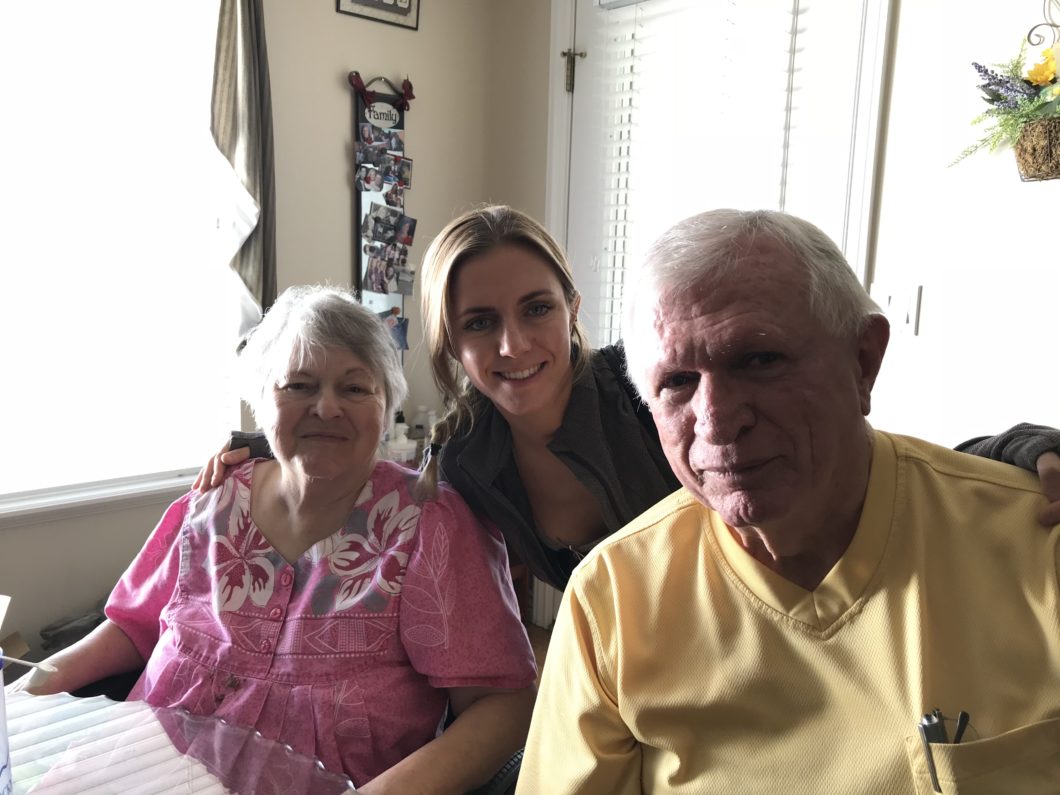According to the World Health Organization, “around 466 million people worldwide have disabling hearing loss;” which is defined as hearing loss greater than 40dB in adults, and greater than 30dB in children.
Kindred Spirits
My grandpa and I were always very close. Growing up, he lived just down the street from me—we did everything together. He always seemed very young. We’d play in the parks, and go to concerts and orchestras together. I loved to dance, so every year he’d take me to the Ballet. Best of all, we’d talk about everything—from small talk to big talk, and our personal struggles to our biggest dreams. We were always there for each other.
Which is why when he started to age—I mean, really age—it took a toll on both of us. It was hard for me to see him lose that youthfulness and vigor he always had. He no longer had the energy to do the activities we always enjoyed. And the worst part? He knew it too.
When he started to become physically weaker, we were still able to sit around the fireplace and talk. But then he started losing his hearing too . . . and that’s when things really changed.
Life became frustrating—for both him and me. We weren’t able to communicate like we used to. It went from pleasant and easy conversations to him struggling to hear me and communicate back.
For my grandpa, hearing aids were a solution to improve his hearing, but he had a hard time adjusting to them. While hearing aids seemed like a simple solution, they were quite difficult for him to adjust to in the beginning. He hated wearing them, and at times he couldn’t adjust them correctly.
3 Ways I Helped My Grandpa Cope with His Hearing Loss
As someone with no background in audiology or speech-language pathology, I found myself struggling with knowing how to best support my grandpa. But then realized my most important role was to be his support system . . .
1. Research
When my grandpa was diagnosed, the first thing I did was read up on hearing loss—especially hearing loss in older populations. I didn’t tell my grandpa I was doing this. I did it on my own accord so I could understand what he was going through without making him try to explain it. I found several websites that were very helpful:
- National Institute on Deafness and Other Communication Disorders
- National Institute on Aging
- World Health Organization
- Health.com Senior Health Reviews
2. Support at Healthcare Visits
Initially, I took my grandpa to an otolaryngologist (ear, nose, and throat specialist/ENT) who specialized in hearing loss for the elderly. During the visit, we were referred to an audiologist who diagnosed and measured my grandfather’s hearing loss, and suggested hearing aids. We went back to the audiologist several times for hearing aid adjustments, when it turned out my grandpa needed the sound to be louder.
Finally, we found a hearing aid center that provided support and counseling, which was nice for when we had questions after getting home.
3. Patience . . . and Humor
For my grandpa, adjusting to new hearing aids didn’t happen overnight. It took several months. And during that trial period, patience was key—from the whole family!
Although he didn’t always want to wear them, we encouraged him to put his hearing aids on as much as possible so he’d get used to them. The more we all stayed educated about his hearing loss and treatment, the better we were able to help him cope.
During this adjustment period, I was there to help him relax and laugh through his ‘struggles’ of adapting to his hearing loss and hearing aids . . . anything to make difficult moments more lighthearted.
Moving Forward
As for me and my grandpa? Well, his quality of life has improved drastically since receiving and adjusting to his hearing aids. We’re both grateful that we can once again enjoy each other’s company without frustration.
And we’re forever grateful for the work done by audiologists and speech-language pathologists who help all of those with audiology, speech, and language disorders.

